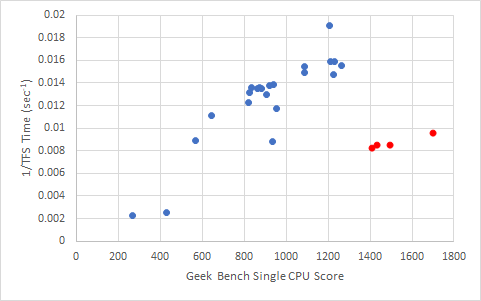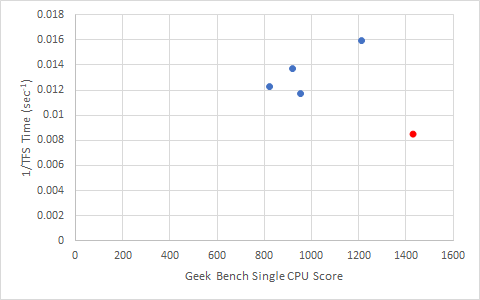
I expect to see a fairly linear relationship. However, the data points for the Ryzen 5000 chips (5300G, 5600G, and 5950X in various rigs) fall well below the line quite consistently. The trouble here is that there is nothing scientific about this graph. While it includes data from a number of different AMD and Intel CPU systems, they are from different rigs with different memory/motherboard configurations. In an attempt to tidy up the comparison, I picked five CPUs (Athlon 300GE, Ryzen 3 2200G, Ryzen 5 3400G, Ryzen 5 Pro 4650G, and Ryzen 3 5300G) to test in the same B450 Motherboard, with the same memory (clocked to the maximum the CPU would allow, so unfortunately, that was not the same for every CPU.) The results there are shown below.

I compiled the code on my laptop (Intel Core i5-10210U, with 20GB of DDR4 SODIMM RAM) using FreeBASIC Compiler - Version 1.07.1 (2019-09-27), built for win32 (32bit). I use the same executable and data set for all of my benchmarking tests.
I find the results both interesting and disappointing. They Ryzen 5000 series chips are impressive by all measures I have seen - except in running my program! I don't know if this is because the chips don't work/play well with FreeBASIC compiled code or if they are just anomalously slow at floating point math. At any rate, these results have caused me to keep using my Ryzen 5 3600 rig as my daily driver and not move to my newer Ryzen 9 5950X build!
